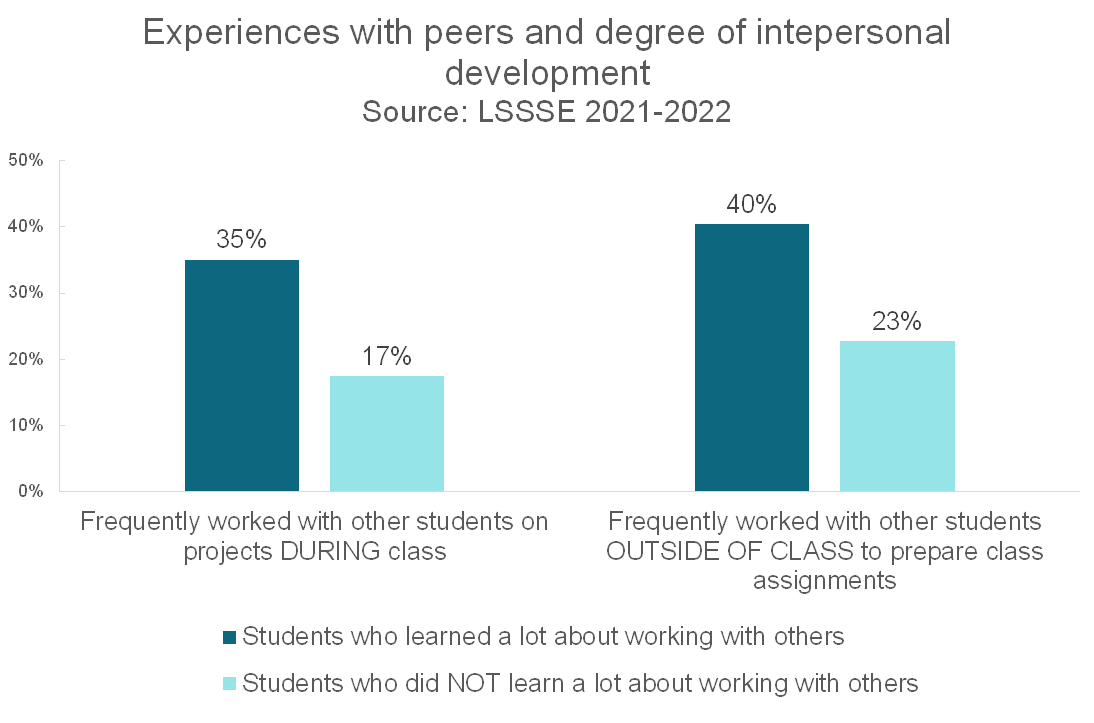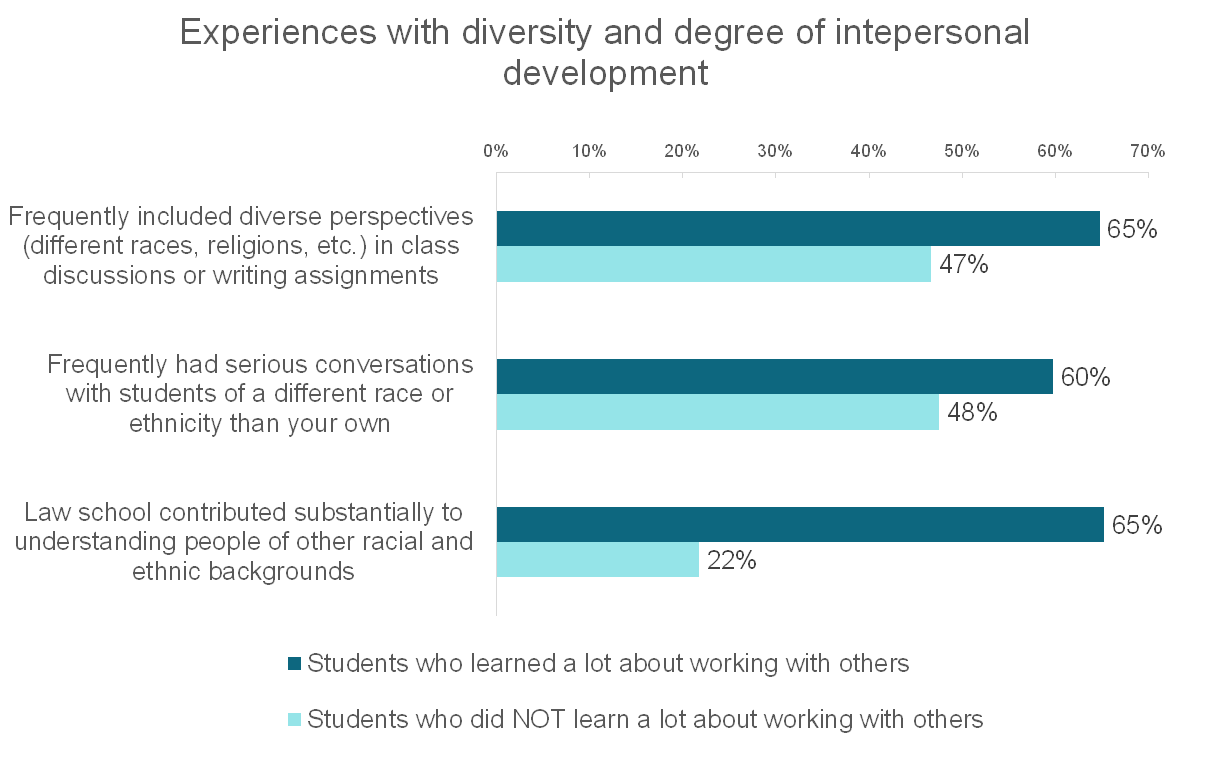Last month, we looked at characteristics and perspectives of law students who developed the ability to learn independently. This month, we will look at students who have substantially improved their ability to work effectively with others during law school.
Developing skills in working effectively with others may be at least partially about exposure. Students who learned a lot about working with others were more likely to frequently work with classmates during class and also more likely to frequently work with classmates outside of class.

Perhaps not surprisingly, sustained contact with others while working toward a mutual goal appears to be associated with increased awareness of issues of diversity. Students who learned a great deal about working with others were more likely to include diverse perspectives in course assignments and class discussions by considering issues of race, religion, sexual orientation, gender, or political beliefs more often than their peers. Three in five (60%) of students who learned a lot about working with others frequently had serious conversations with students of a different race or ethnicity than themselves, but only 48% of other students did so. However, the largest difference is in the degree to which students feel that law school contributed substantially to understanding people of other racial and ethnic backgrounds. Two-thirds (65%) of students who learned a lot about working with others felt this way compared to a meager 22% of students who did not learn a lot about working with others.

We must consider, however, that students who feel their law school contributed substantially to their ability to work effectively about others may feel more engaged and positive about their law school experience overall compared to their colleagues who did not experience very much personal development in this area. The students who learned how to work with others were also more likely to understand themselves quite a bit better because of their time at law school (73% vs. 35% of students who did not learn much about working with others) and to be more satisfied with their overall law school experience (89% vs. 65%). There is likely a constellation of environmental and personal factors that influence how students learn to engage with others and what value they get from these interactions. However, it seems likely that students who work with others, both during class and outside class, develop more collaboration skills and hone their ability to more deeply understand the perspectives of those who do not share their background.
